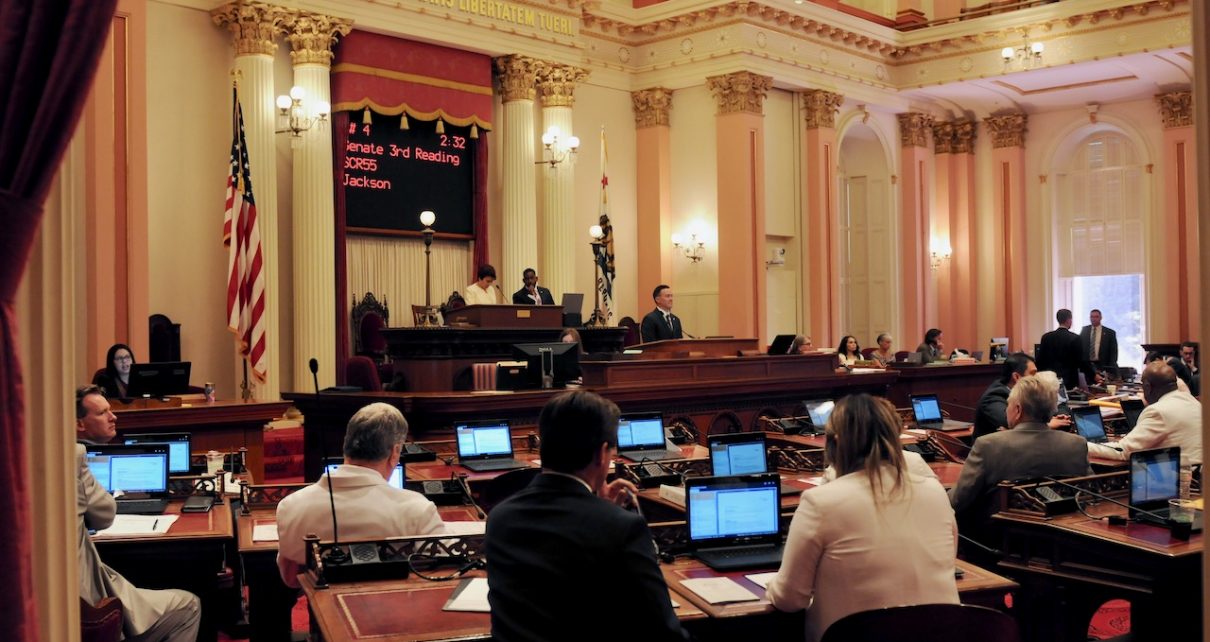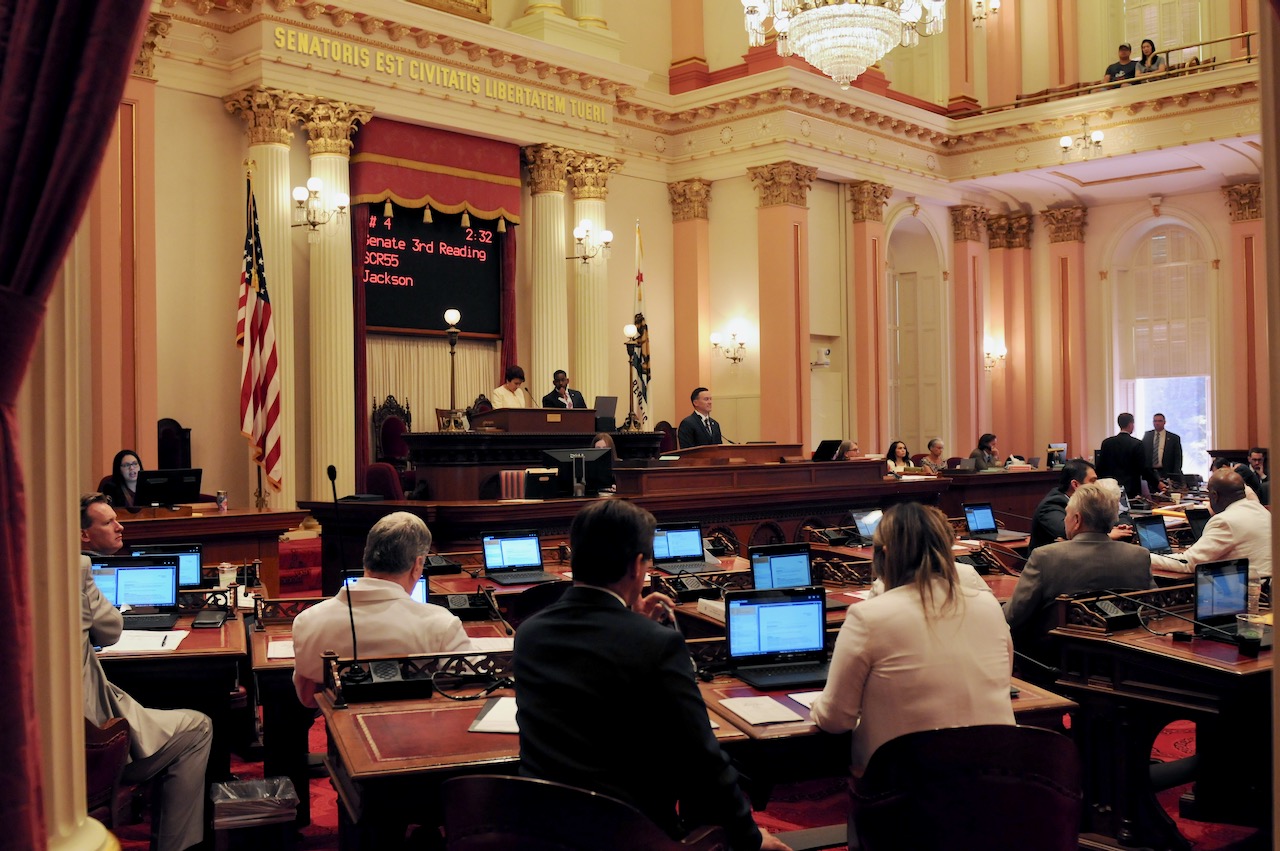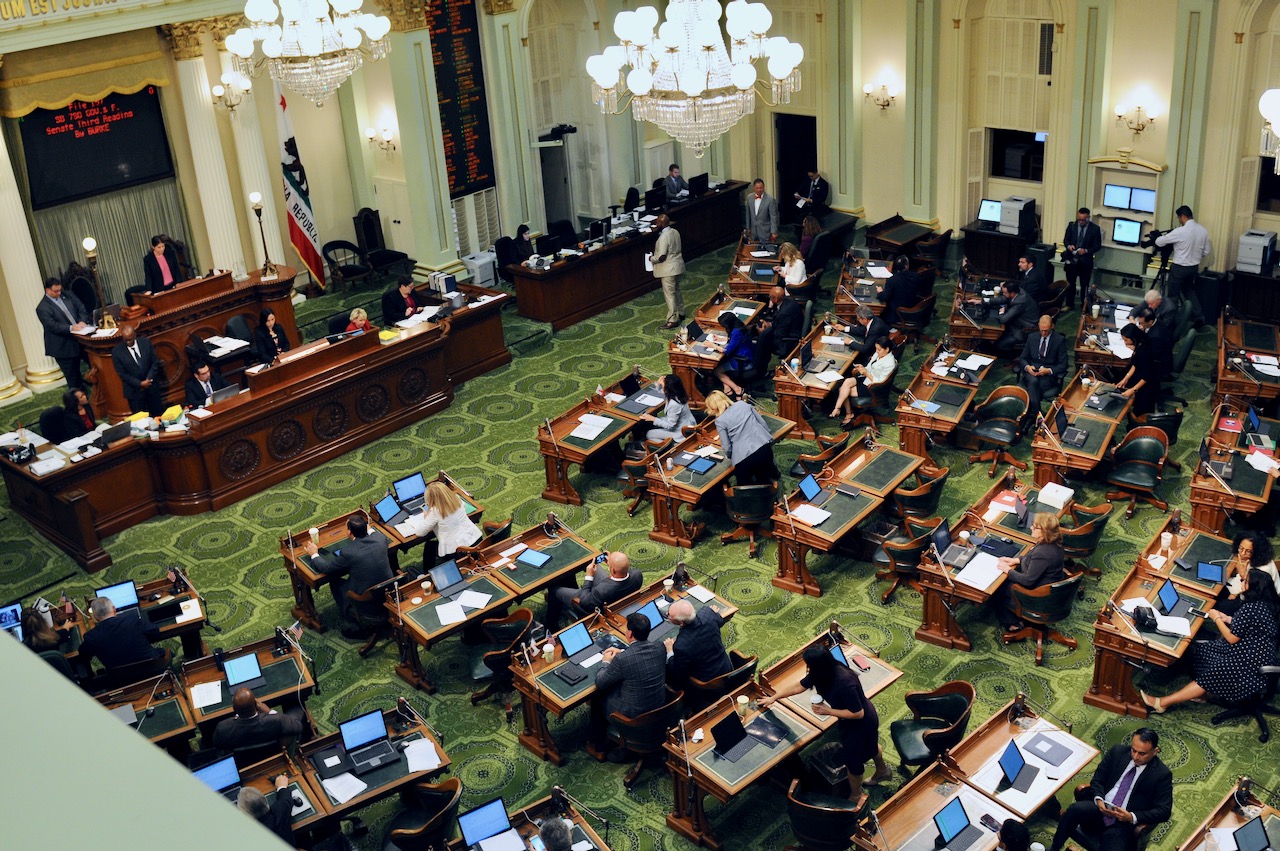
California State Senate. (Photo: Kevin Sanders for California Globe)
Who Holds Greater Lawmaking Power: The Legislature or the People?
California’s Constitution provides the three branches of government, as well as the rights of direct democracy
By Chris Micheli, August 30, 2022 6:28 am
Who holds more lawmaking power in California? Do elected members of the Legislature or the People of the state have greater lawmaking power?
California’s Constitution provides the three branches of government, as well as the rights of direct democracy. Article III, Section 3 provides the separation of powers among the three branches of our state government: legislative, executive, and judicial.
Article II concerns voting, the initiative and referendum, and the recall. Specifically, Section 1 provides the following: “All political power is inherent in the people. Government is instituted for their protection, security, and benefit, and they have the right to alter or reform it when the public good may require.”
Article II grants the people “all political power.” What is the definition of political power? Other states, such as Utah and New Jersey, use the same language that California does. Is it broader or narrower than legislative power? The term “political” used in Article II is obviously different than the term “legislative” used in Article IV.
Article IV concerns the legislative branch. Specifically, Section 1 provides the following: “The legislative power of this State is vested in the California Legislature which consists of the Senate and Assembly, but the people reserve to themselves the powers of initiative and referendum.”
Article IV gives “the legislative power” to the Legislature. What is the definition of legislative power? Is it broader or narrower than political power?
It is also often stated by the California Supreme Court that the Legislature’s plenary lawmaking powers are only limited by the state Constitution (as opposed to the United States Constitution that grants specific powers to the U.S. Congress).
The Legislature can enact statutes and propose constitutional amendments (which must be voted upon by the people). Is this more power than what the people have? Or is it less?
Article IV also reserves to the people the powers of initiative and referendum. The initiative is the power to propose and enact constitutional amendments or statutes. The referendum is the power to repeal a statute that has been enacted by the Legislature.
Some view the legislative branch as being the most powerful of the three branches because it is in charge of making laws, and they can override a gubernatorial veto, and control state spending through the budget process.
In California, the voters and the Legislature share lawmaking power. The courts in this state have generally viewed the Legislature as having plenary power over lawmaking, but it is limited by the state Constitution. One of those limits is the power of the electorate through the initiative and referendum processes.
The California Supreme Court, in its decision in Rossi v. Brown (1995) 9 Cal.4th 688, 38 Cal.Rptr.2d 363; 889 P.2d 557, stated:
The only express constitutional limitations on the people’s exercise of the statewide initiative power are those in sections 8 and 12 of article II. Section 8, subdivision (d) of article II bars initiative measures “embracing more than one subject,” and section 12 of that article bars constitutional amendments and statutes which “name[] any individual to hold any office, or name[] or identif[y] any private corporation to perform any function or to have any power or duty ….”
Based upon this, the state’s high court views the electorate as having fewer limitations on its lawmaking power than those imposed on the Legislature. In fact, the Supreme Court in the Rossi case cited above stated, “[t]he people’s reserved power of initiative is greater than the power of the legislative body.”
One could also state that the voters have plenary power over lawmaking, and can pursue an initiative regarding any appropriate topic that can be addressed by initiative. As a result, both the voters and the Legislature share the power of lawmaking. But that leads to the question whether one body is more powerful than the other. Which body has ultimate power? Can either body overrule the other?
One view is that, because the voters can enact a constitutional amendment directly, the voters have greater power to make laws than does the Legislature. Also, there are fewer limits on the voters’ powers than there are limitations on the Legislature as set forth in Article IV of the state Constitution. And, the voters could effectively repeal a statute or preclude the Legislature from acting in an area through the referendum process.
- Insignia of Nonprofit Associations - February 19, 2026
- Endangered Species Regulation - February 19, 2026
- Renewal of Judgments - February 18, 2026




